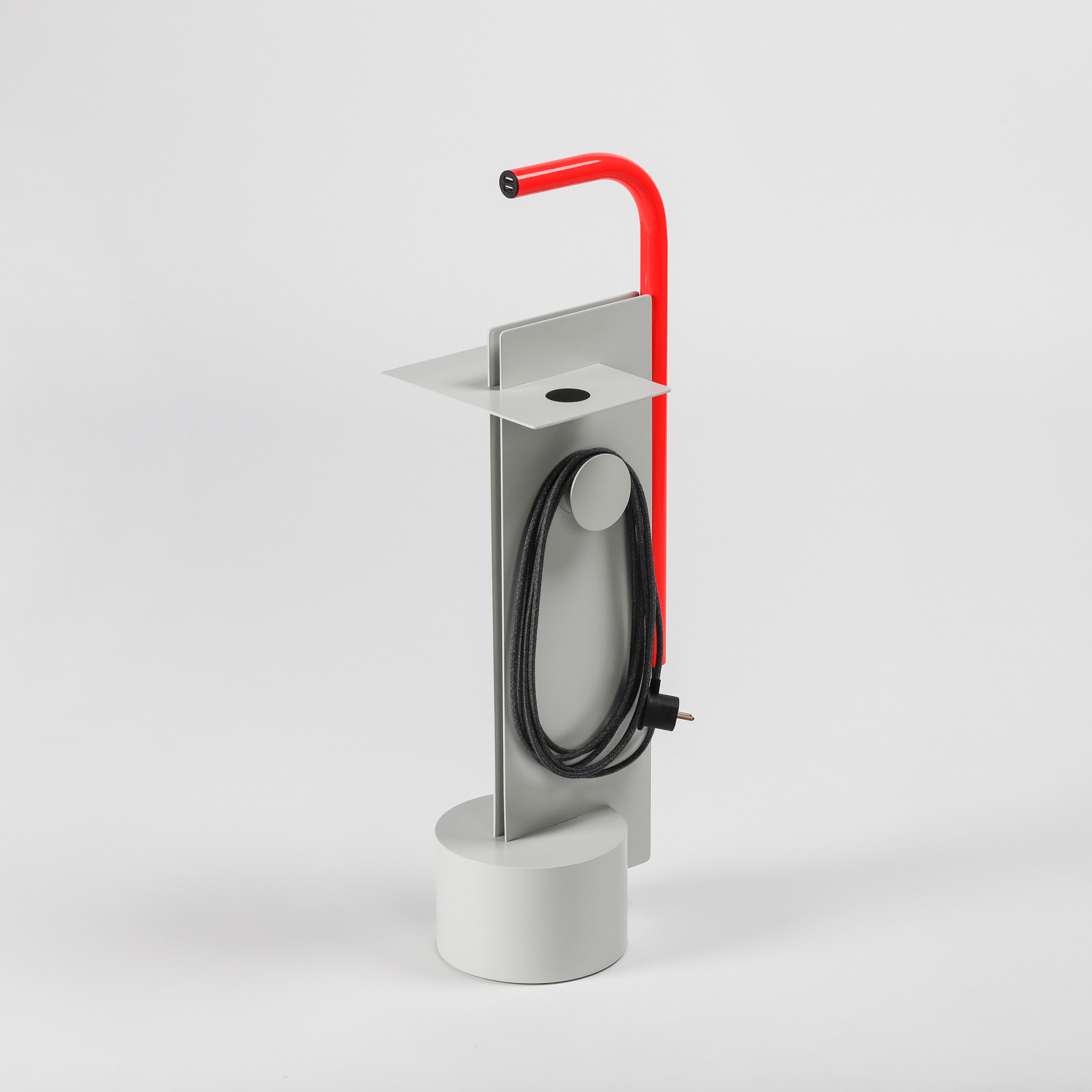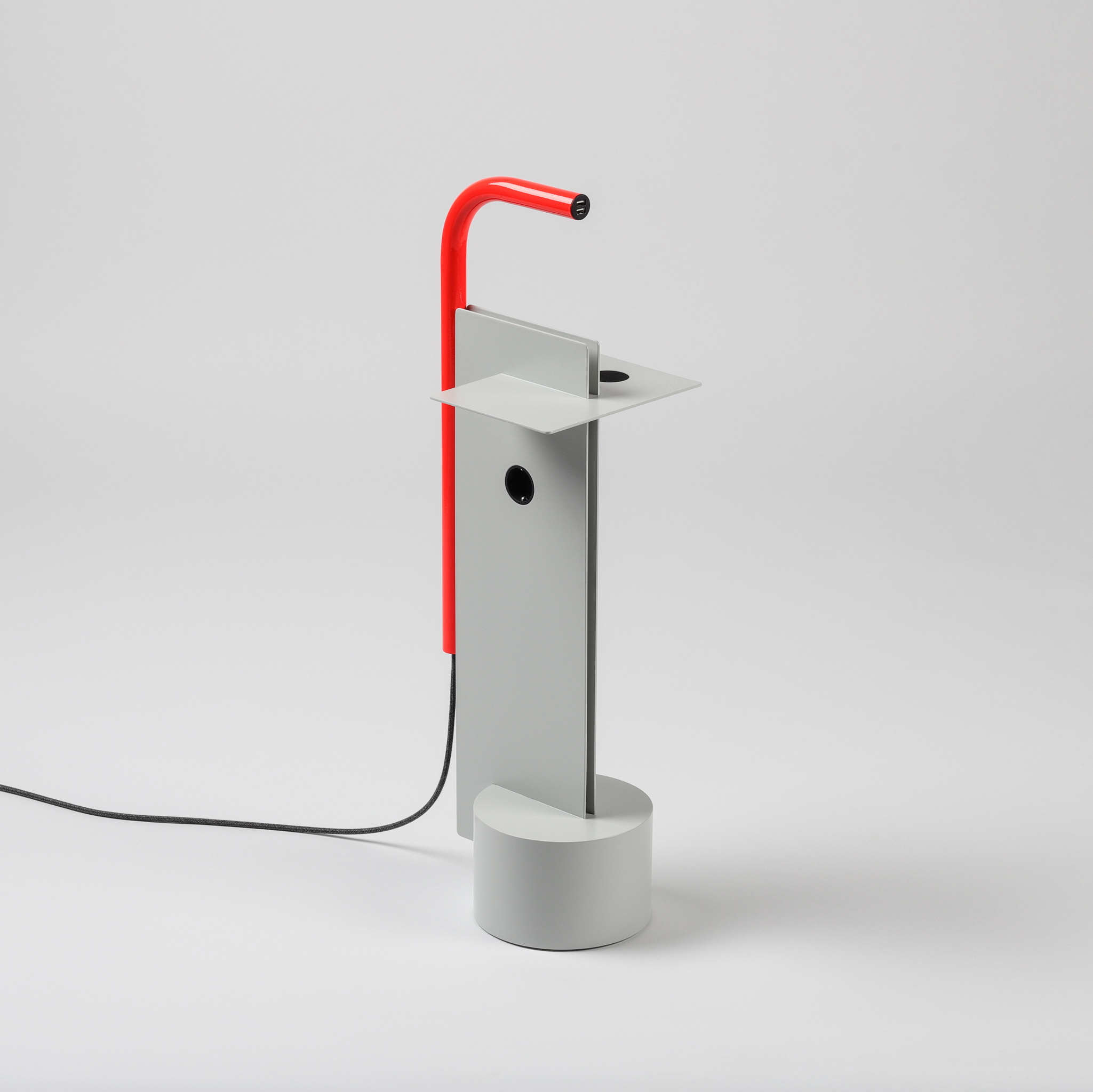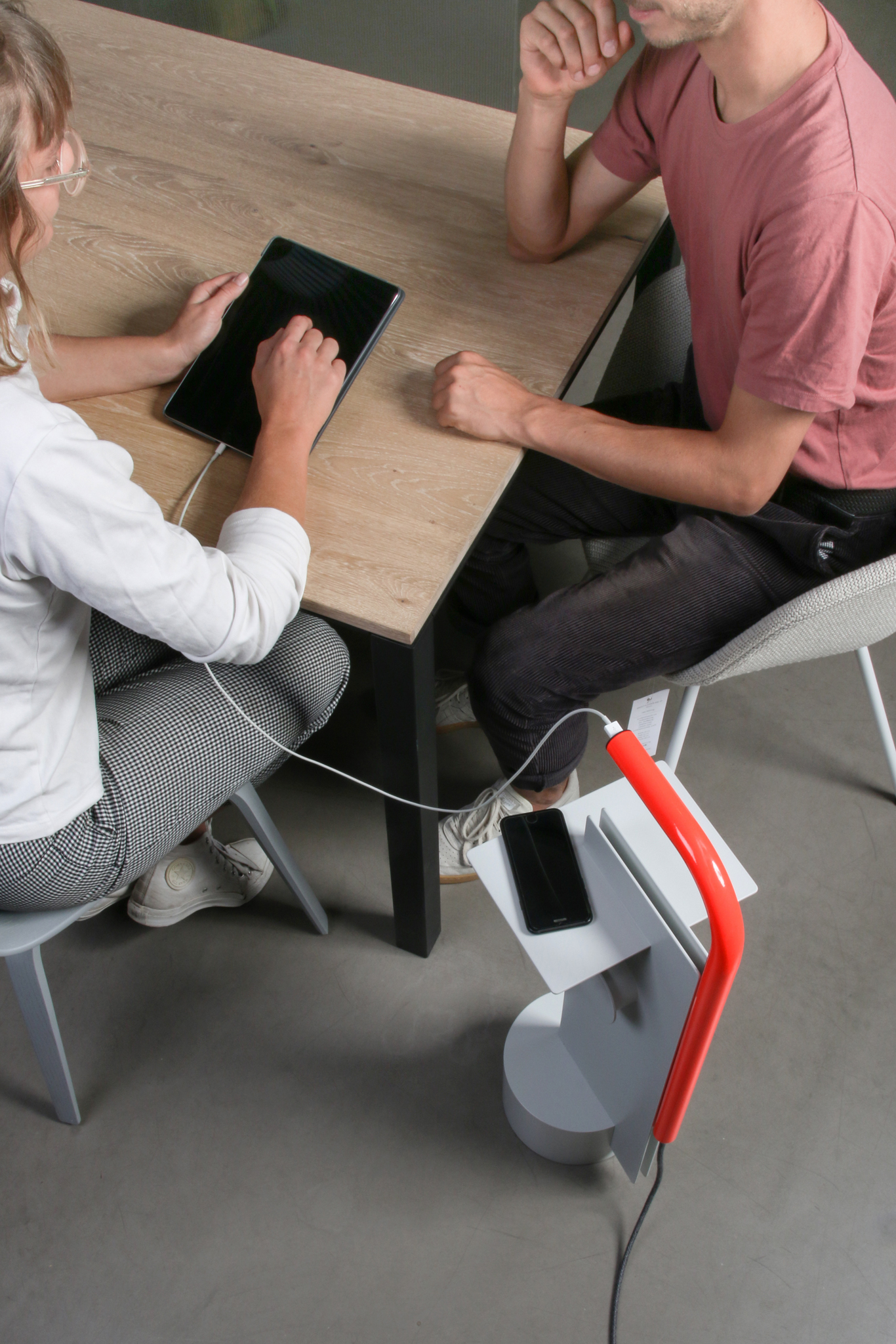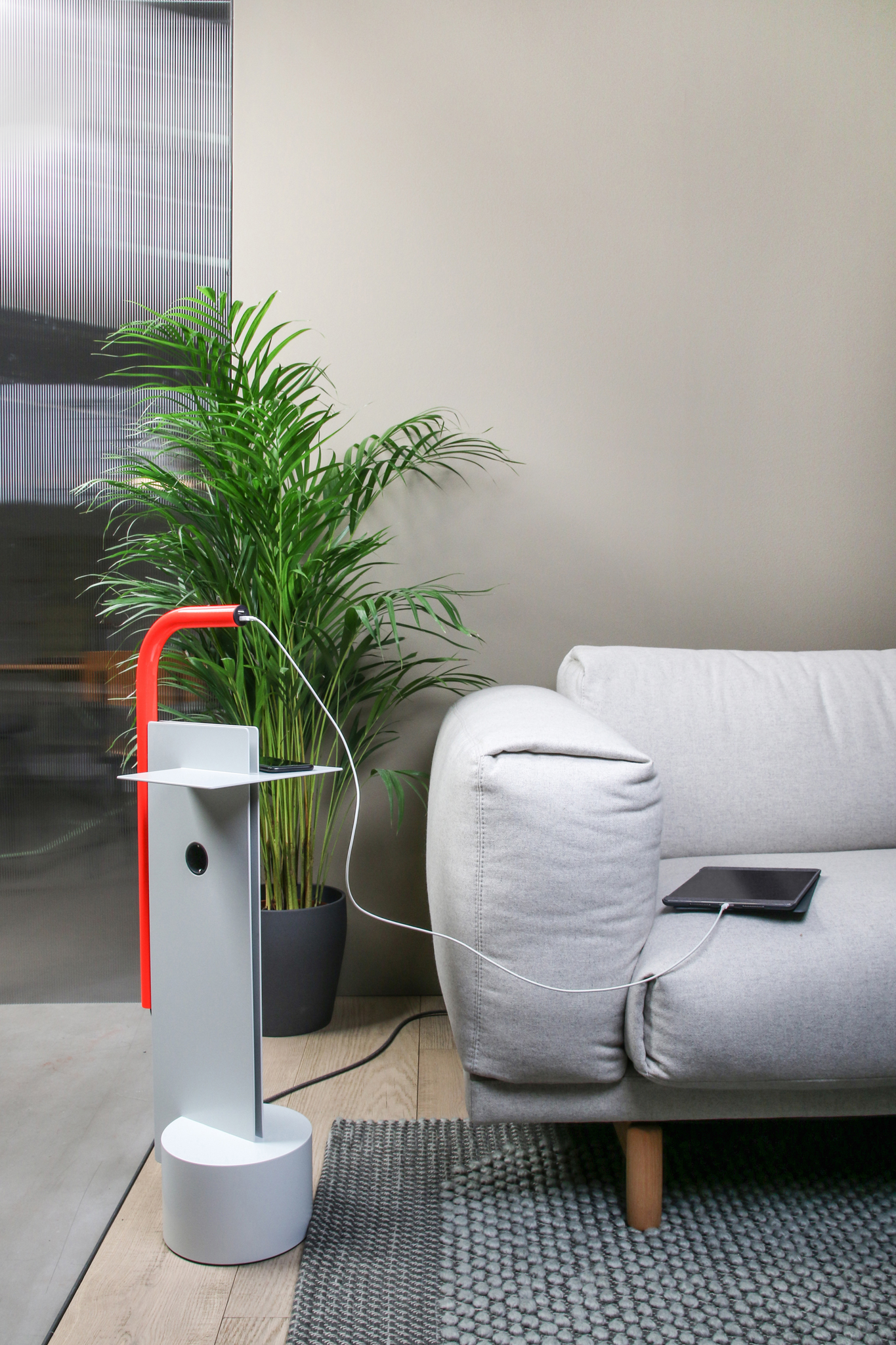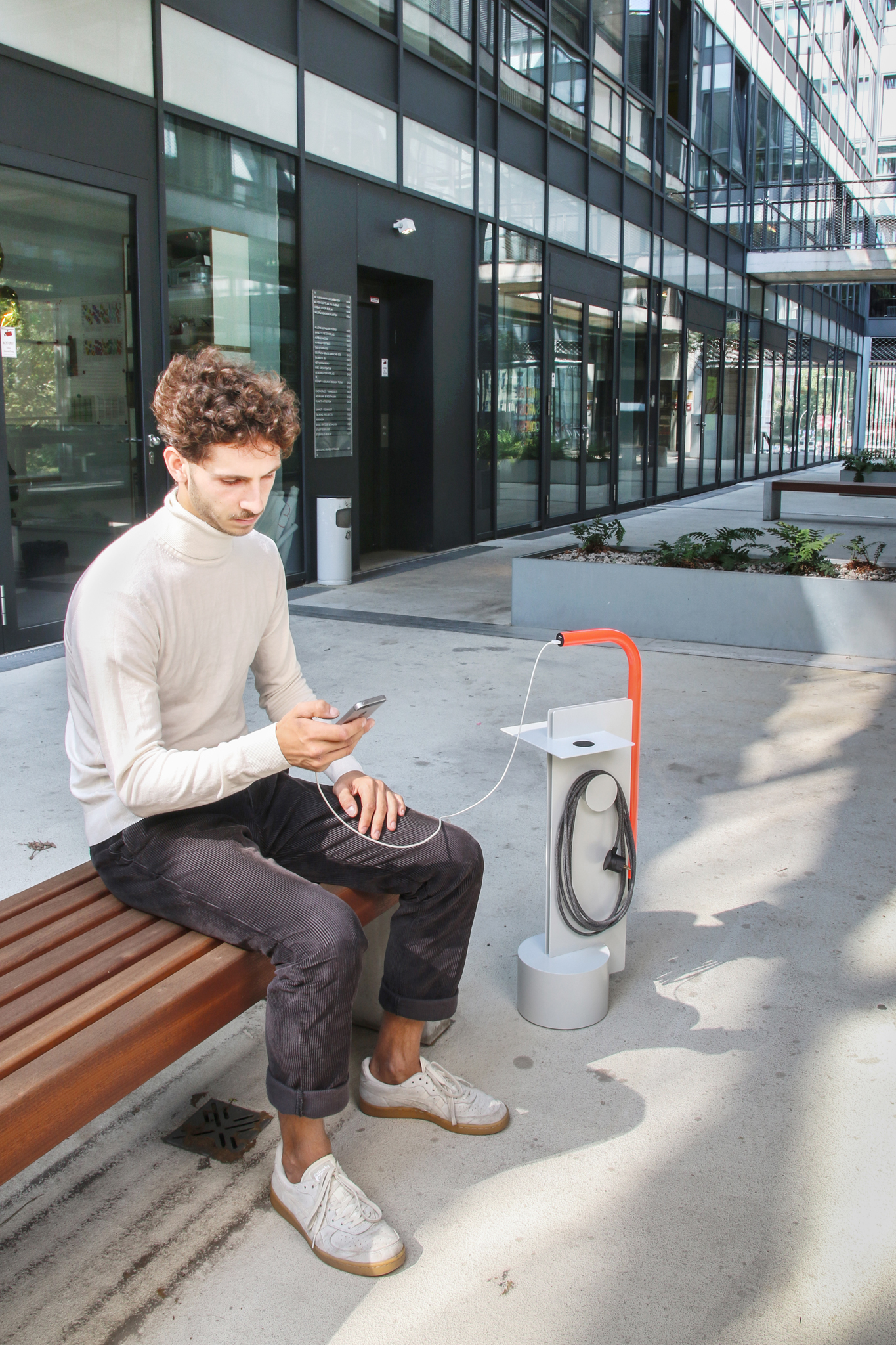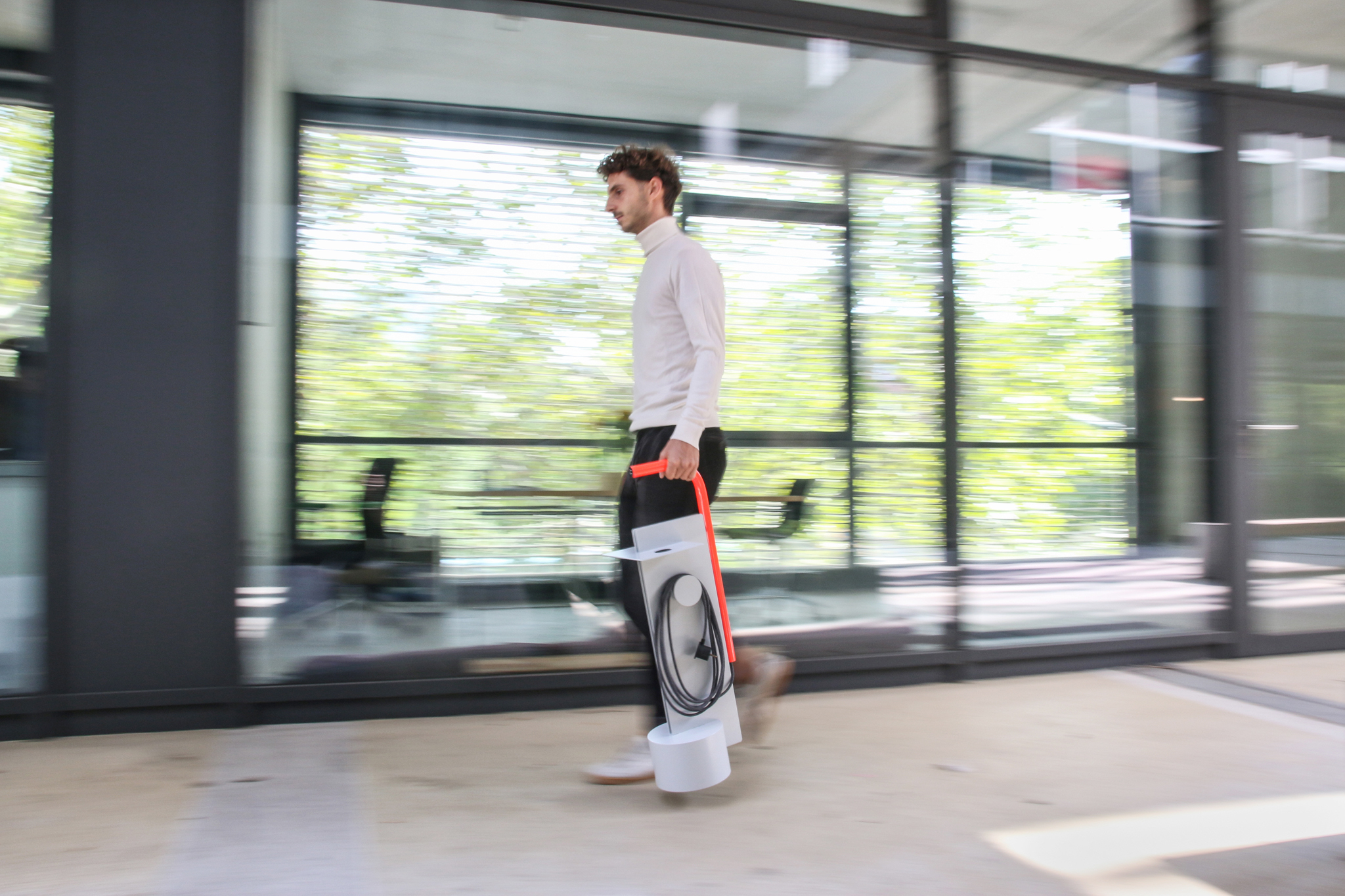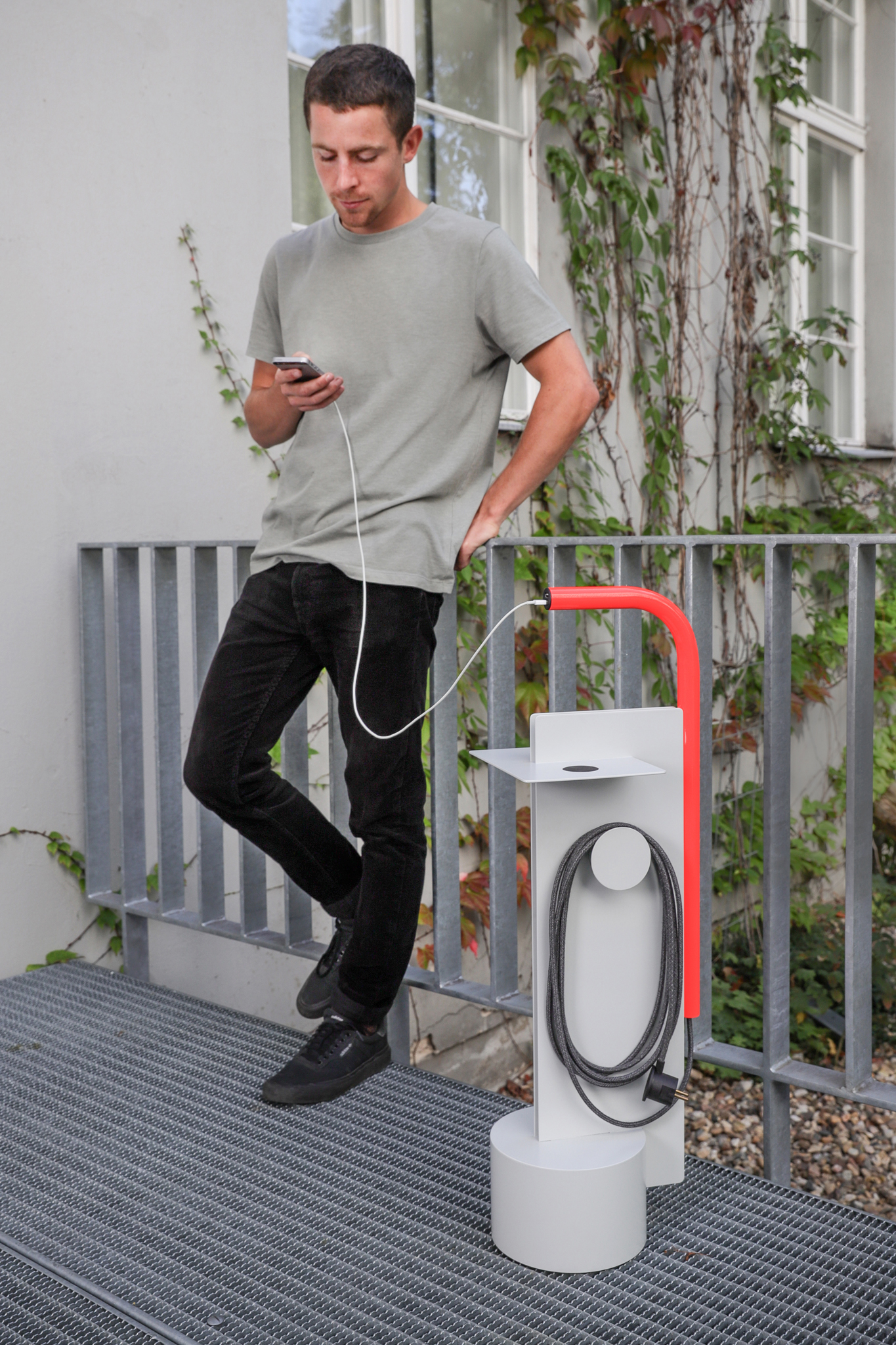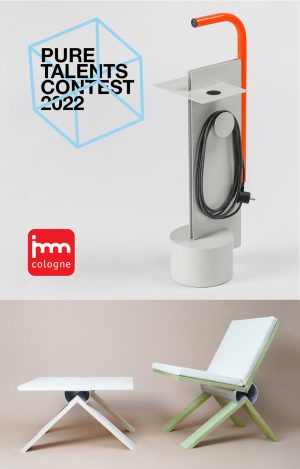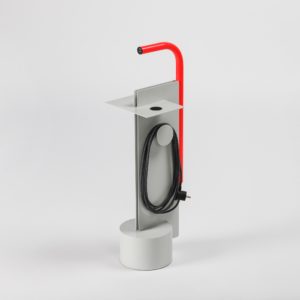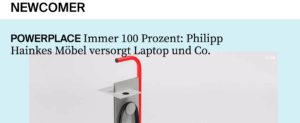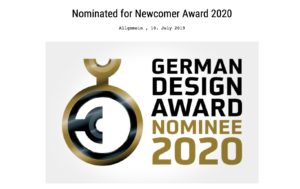POWERPLACE | Masterarbeit 2019
Das Projekt POWERPLACE untersucht Bedürfnisfelder im gegenwärtigen Lebensumfeld, um für diese innovative Lösungen zu finden. In Feldforschungen wurdenBenutzer beobachtet, wie diese mit Objekten und der Umgebung interagieren. Auffällig ist, dass heutzutage viele Aktivitäten auf Smartphones oder andere digitale Geräte aufbauen oder diese nutzen. In unserem täglichen Leben sind wir auf diese Multimedia-Geräte und damit auf Strom angewiesen. Eine Konsequenz daraus ist ein Chaos von Kabeln, Steckern und Ladegeräten in Privaträumen, Büros und halböffentlichen Räumen. Dieses Projekt konzentriert sich auf die genannten Bereiche und untersucht das Potenzial einer neuen Möbelkategorie, die den dortigen Bedürfnissen entspricht. POWERPLACE bietet ein
puristisches und zurückstehendes Möbelstück, das wie ein gewöhnlicher kleiner Beistelltisch wirkt. Tatsächlich ist das Objekt sehr technisch und kombiniert ein Verlängerungskabel, eine Steckdose, Steuerungstechnik und eine Vielzahl von Steckern und Kabeln in einem organisierten Objekt. Im Gegensatz zu vielen anderen Lösungen, versucht sich das Objekt nicht zu verstecken, sondern sich als neues, eigenständiges Objekt zu etablieren. Es wird zu einem Hybrid, zwischen einem komplexen, technologischen Gerät und einem einfachen, zurückhaltenden Möbelstück und eröffnet so eine neue Kategorie von Möbeln mit dem Hauptzweck, Strom zum Laden aller Arten von Geräten bereitzustellen. Die Nutzungsfelder reichen von privaten Wohnungen, über Cafés, Co-Working Arbeitsplätze und Büros bis zu Hotels. Das Möbel bietet eine Standard-Steckdose, zwei USB-Steckplätze und einen drahtlosen Ladespot. Der integrierte Lithium-Akku garantiert eine hohe Flexibilität und e
rmöglicht den mobilen Einsatz für eine Vielzahl von Situationen.Für die Konstruktion wurde Wert auf die bestmögliche Trennung aller Materialien gelegt.Das Korpus und alle konstruktiven Teile sind aus Aluminium gefertigt, dieses dient auchgleichzeitig zur Kühlung des Akkus. Alle Kunststoffteile sind aus dem gleichen Kunststoff gefertigt und im gleichen Farbton gefärbt. Nach der Demontage haben sie einen Block Aluminium, einen Haufen Kunststoffteile, den Lithium-Akku, Kabel und einige Leiterplatten.
POWERPLACE addresses neglected areas in our present living environments and aimsto afford an innovative solution to modern energy needs. After observing how we interact with our products and our current surroundings, it’s surprising how many activities are built around or involve the use of digital devices. In our daily lives we entirely depend on these multimedia devices and, therefore, on electricity. One consequence of this is a mess of cables, plugs and chargers in private rooms, offices, and semi-public spaces. This project focuses on these spaces and explores the potential for a new furniture category which addresses these needs.POWERPLACE offers a puristic and iconic piece of powered furniture. On the inside theunit is highly technical and combines an extension cord, a power bank, control panels and a variety of plugs and cables, in one reduced object. Compared to many other solutions it isn’t intended to blend in, but to establish itself as a new, much-needed typology. It is a hybrid between complex, technological device and a simple, restrained furniture piece. It opens up a new category of furniture with the main purpose being to provide mobile power to charge all kinds of devices.The fields of use reach from private housing, to cafes, co-working spaces, offices and hotels. Included is a standard power socket, two USB slots and a wireless charting port.The integrated lithium battery guarantees high flexibility and allows mobile use for all kinds of situations.One focus of the construction was to reduce the amount of different materials. The bodyand all supportive parts are made from aluminum. All plastic parts are made out of the same polymer and have the same color treatment. When disassembled one is left with a block of aluminum, a collection of plastic components, the lithium battery, cables and various circuit boards
Prozess
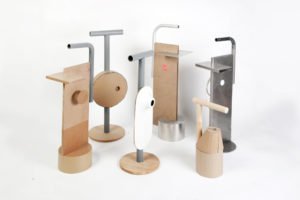
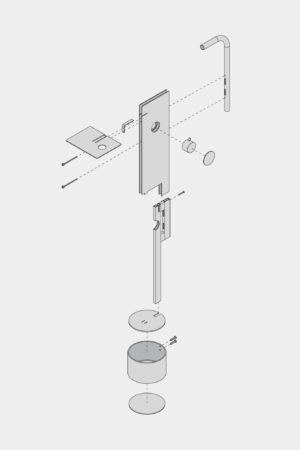
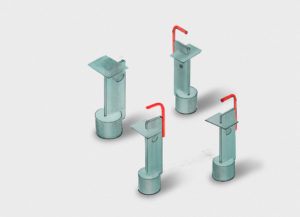
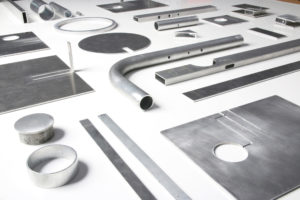
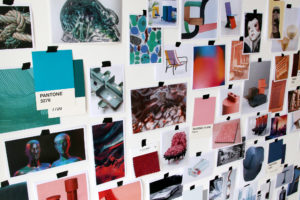
Betreuer
I. Hans, H. Neumann
